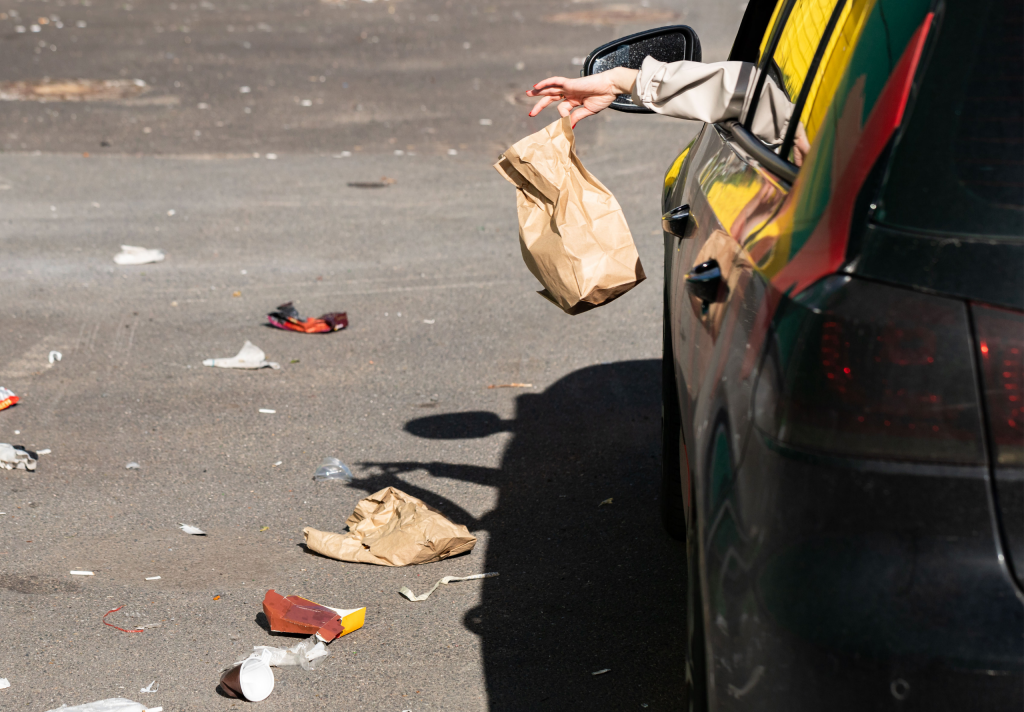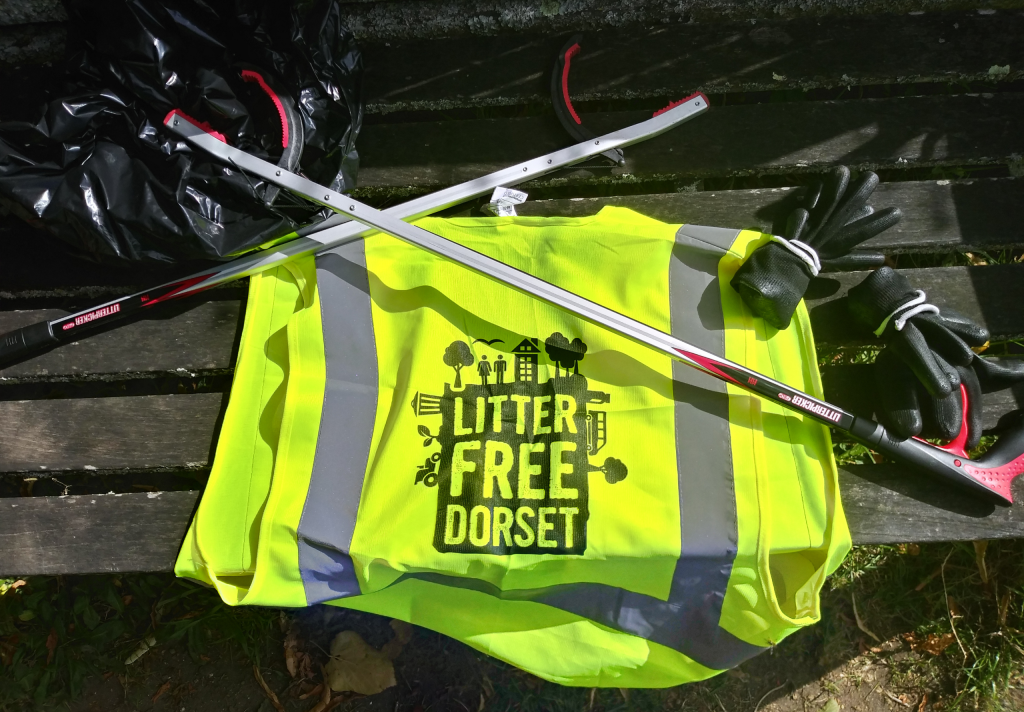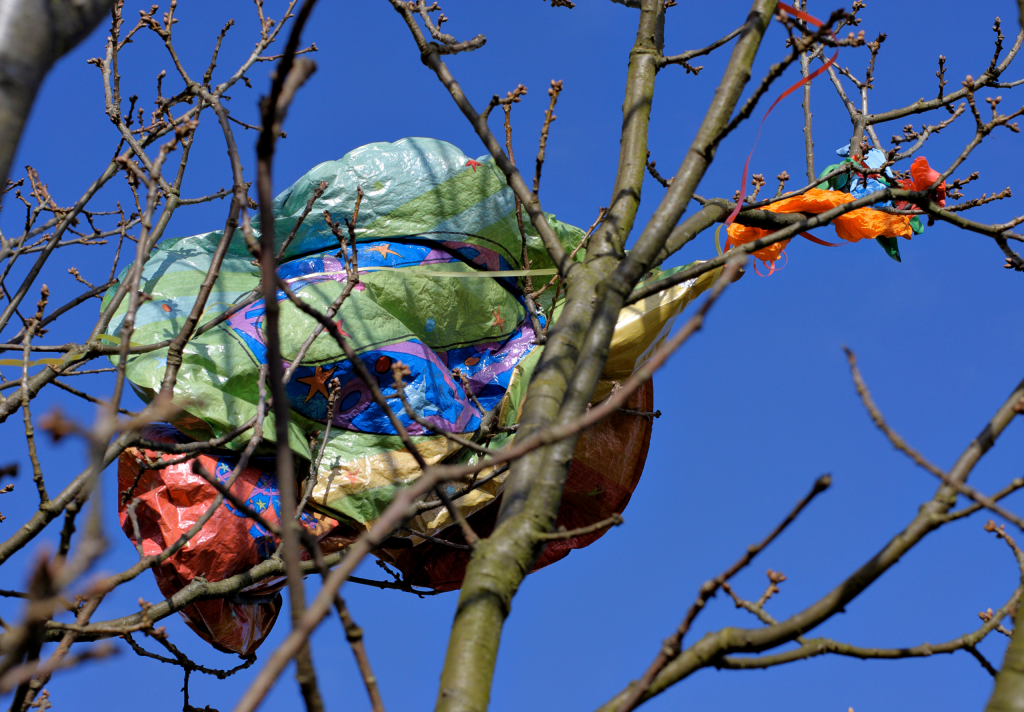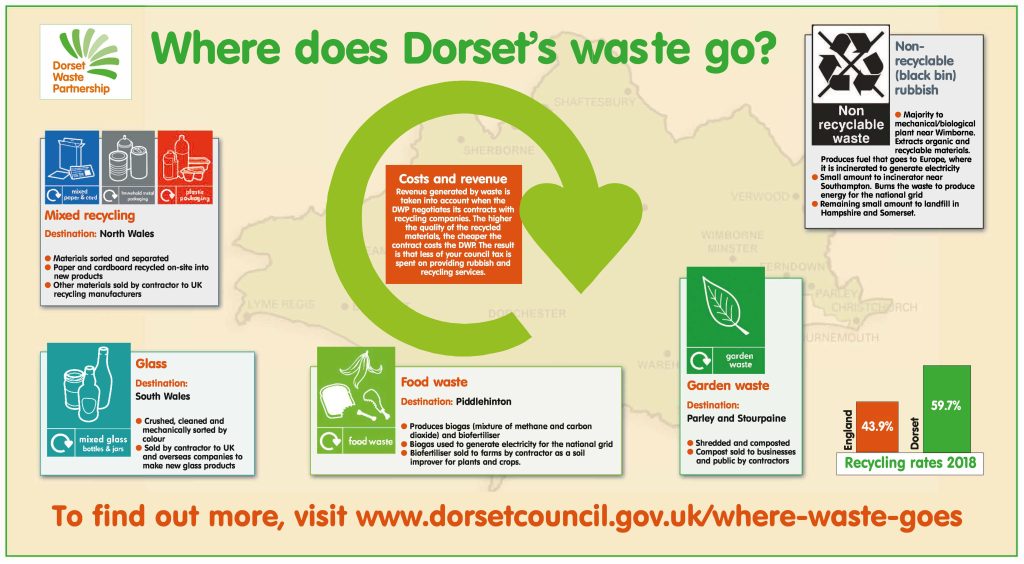




What are the most commonly littered items?
According to a 2017/18 Keep Britain Tidy survey the most commonly littered item is cigarette butts, which were found on 79% of surveyed sites. The top 10 most commonly littered items were found to be:
Is it illegal to litter?
It is a criminal offence to litter in public spaces and people caught littering can be issued a fixed penalty charge or face prosecution in court.
How are litter laws enforced?
In the UK, local authorities, the police and other primary litter authorities are responsible for litter law enforcement and have the power to prosecute litter offenders. The 1990 Environmental Protection Act recognises duty bodies that manage land with public access as legally responsible for keeping the land clear of litter and refuse. These duty bodies include crown authorities, principal litter authorities, local authorities (for highways they manage) and parish councils and governing bodies of designated educational institutions. If litter is dropped on private land, it is the owner or occupier of the land that is held responsible for keeping the land clear of litter and refuse.
How do I report a litter incident or a fly tip?
If you come across any incidents of litter (including dog fouling), fly-tipping, or overflowing public bins, please report it to Dorset Council by clicking on the link below.
If you come across a fly tip it is important not to clear the rubbish if its not your land as there may be evidence within the waste left behind which could help with prosecution.
When is bathing water tested at beaches?
Water quality is tested regularly in the summer months (May to September) at designated areas by the Environment Agency to check on the levels of harmful bacteria and other pollutants in the water. To check your local bathing water before a dip visit SWIMFO for more information.
What is a storm overflow and why do we have them?
Storm overflows are used during heavy rainstorms to protect properties from flooding and to prevent sewage from overflowing into streets and homes. They are part of an older type of sewer system called a combined sewer system. These sewer systems carry both surface water (run-off from roof gutters, patios, driveways and some highways) and the foul water from homes and industry together in one pipe. The combined sewage is then transported to a water recycling centre to be treated.
During a storm event, heavy or prolonged rainfall can rapidly increase the flow in a combined sewer and cause it to become overwhelmed. Storm overflows are designed to release excess storm water into rivers or the sea when this happens. For more information on storm overflows visit Wessex Waters website.
Can storm overflows impact public health?
When storm overflows operate, the dilute sewage contains faecal bacteria, but their operation does not mean a bathing water’s quality is necessarily unfit for swimming. Bacteria generally does not survive long outside host organisms and are especially fragile when exposed to sunlight in seawater. Dispersion and dilution factors are also vital in determining the public health impact of water where overflow operation has occurred.
What about rivers?
Water isn’t tested as regularly in rivers. It’s important for wild swimming enthusiasts to know that there are a number of factors that affect river water quality. Water companies can have an influence, along with other activities such as agricultural practices, septic tanks and road drainage. Take a look at the River Trust map ‘Is my river fit to play in’
How can I get involved in litter picking in my area?
In Dorset, there are many local community litter-picking and beaching cleaning groups who organise weekly and monthly litter picks and are always recruiting and welcoming new volunteers.
CLICK HERE to find your closest group.
There isn’t an active litter picking group in my area, how to I start my own group?
Litter Free Dorset has compiled some useful resources to help you organise your own litter pick. We also have litter picking equipment available to loan. CLICK HERE to find out more.
What equipment would you suggest you litter picking?
Litter Free Dorset recommends the use of a litter picker, cut resistant gloves, a durable, strong bag and a high-vis jacket to conduct a litter pick safely. All of this equipment is low-cost and can be easily purchased online however, we do offer out equipment (hoops, litter pickers and high vis) for organised litter picking events.
Get in touch with us at litterfreedorset@dorsetcouncil.gov.uk to enquire.
Where does Dorset’s waste go?
Ian Manley from Dorset Council’s waste services explains more
Please CLICK HERE to find out even more information on Dorset Council’s website.

What goes in which bin?
Dorset Council Waste Services provides each household with separate bins and boxes to separate waste items into rubbish, recycling and food waste. CLICK HERE to see what goes in which bin.
Why should I recycle my food waste?
We pay to dispose of general rubbish by the tonne. Food waste is very heavy and so costs a lot more in tax-payers money to dispose of if put in the general rubbish bin. One fifth of Dorset’s rubbish in weight is still food. Recycling your food waste is three times less expensive than sending it to landfill. Rotting food in landfill generates methane, a harmful greenhouse gas, which contributes to global warming and climate change.
How can I recycle batteries?
Household batteries and rechargeable batteries can be recycled at your local household recycling centre and also at leading supermarkets. They can also be collected at the kerbside with your regular recycling collection, as long as they are placed in a reusable battery bag provided by Dorset Council Waste Services. The bag will be emptied and returned with your recycling bins. CLICK HERE to request a battery bag.
How can I recycle ink cartridges?
Ink cartridges can be recycled at your local household recycling centre. Empty ink cartridges can also be recycled by donating them to charity – CLICK HERE for more info.
Are envelopes with plastic windows recyclable?
Yes, you do not need to remove the plastic window from envelopes to recycle them.
Where can I dispose of worn out clothing that cannot be donated to a charity shop?
Worn out or torn clothing can be put in textiles recycling banks, found in car parks around Dorset. Please put the clothing in a plastic bag when putting it in the bank. FIND YOUR NEAREST BANK HERE
How should I dispose of bulky waste?
In Dorset, bulky waste, for example, refrigerators, mattresses and other large appliances, can be disposed of at Dorset Council’s Household Recycling Centres. If you are unable to transport your waste to a HRC, you can book a bulky waste collection through Dorset Reclaim. CLICK HERE to find out more.
How should I dispose of garden waste?
In Dorset, garden waste can be disposed of at Dorset Council’s Household Recycling Centres or can be collected via Dorset Council Waste Services garden waste collection service. CLICK HERE to find out more and apply for a garden waste bin.
Can I pay someone to take my rubbish away?
Rubbish you’ve handed to someone else is still your legal responsibility until it is correctly disposed of. If someone – such as an unlicensed ‘man in a van’ found online – were to fly-tip that waste, you could end up paying a fine or being taken to court. Always check for a waste carriers licence. CLICK HERE to find out more.
Can plastic film be recycled?
Plastic films (and carrier bags) are unable to be recycled by Dorset Council’s recycling service. However, they can be recycled at carrier bag collection points at larger supermarket stores. CLICK HERE to find your closest carrier bag collection point, plus more info on recycling plastic film.
Why can’t I recycle TetraPak in household recycling?
Tetrapak cartons are made up of foil, cardboard and wax which are very hard to separate. However, you can take tetrapaks to our carton banks located over Dorset. CLICK HERE to find you nearest carton bank.
Are compostable coffee cups recyclable?
Unfortunately, these are not recyclable. By their nature, compostable plastics are designed to break down, not to be recycled. Compostable cups can only be broken down in industrial ‘in-vessel- composters, which we do not have access to in Dorset. We greatly encourage people to use a reusable coffee cup or flask, and many cafes now offer a discount for using one.
What is the best sustainable choice?
In short – no packaging at all. Products that you can purchase from local shops with no packaging is the best long term solution for our planet. However we do understand trying to carry your fish and chips onto the beach in just your hands might be tricky…
Top tips:
Ask yourself:
Beware of greenwash! Bioplastics such as bio-PP, bio-PE, or bio-PET may help reduce greenhouse gas emissions as compared to traditional plastics because no petroleum is used in their production. However, they provide no environmental benefit if discarded and can be difficult to recycle.
There is a big difference between degradable, biodegradable and compostable.
Degradable – Everything is degradable so this isn’t necessarily a positive environmental claim. For example oil derived plastic is photodegradable meaning it breaks down in sun light however, plastics never break down completely and remains as micro plastics in our environment. Biodegradable – This mean an object can be biologically broken down by microorganisms. Compostable – When a product biodegrades to produce carbon dioxide, water and humus within a specified period of time.
Not all alternatives to single use plastic can be easily recycled. For example compostable packaging is designed to be processed in an industrial composting facility. It won’t compost in the marine or natural environment or in a landfill site. There aren’t many industrial composting facilities in the UK and therefore we would recommend checking with the company selling you the product where and how it can be collected and processed.
Bioplastics – What are they?
To be called a bioplastic, a product has to be either biodegradable or made from plant-based materials. But being made from a plant doesn’t mean a product will degrade like a plant, and being biodegradable doesn’t mean a product will break down with food waste in the kitchen. In reality, most bioplastics need to be composted at very high temperatures over several weeks in an industrial composter.
Again in short – Reusing and refilling is best.
What does the number in the triangle on packaging mean?
The triangle and number on packaging is mainly for the producers and re-processors to use, showing the specific type of plastic. However, the numbers can’t be used to say which items can and can’t be recyclable due to overlaps between the categories. Learn more by visiting Recycle Now
